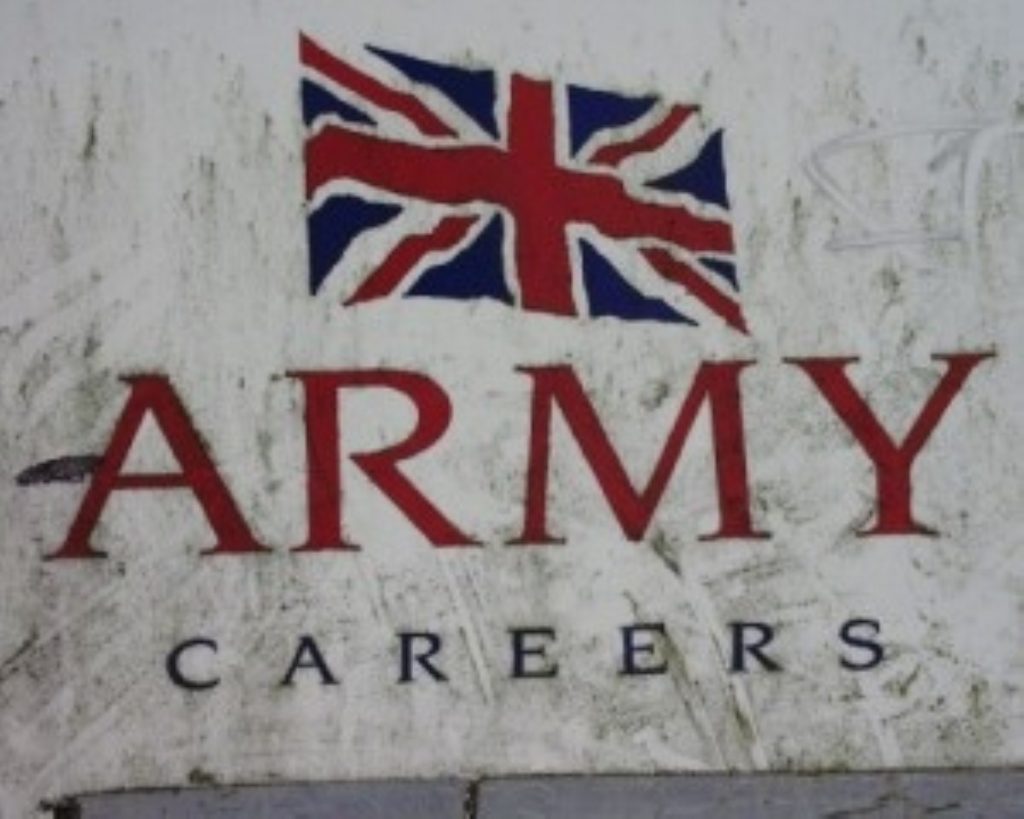Armed forces attacked over treatment of young recruits
The treatment of young recruits by the UK’s armed forces has been sharply criticised by the Commons Defence Select Committee.
The committee said the armed forces had “failed to grasp the nettle of the duty of care” for young recruits and urged them to reconsider recruiting people under the age of 18.
It recommended that an independent military complaints commission be established to scrutinise bullying and sexual and racial harassment.
MPs also said that greater attention must be paid to the needs of those coming from at-risk groups, stressing that this did not involve “screening out” minority groups but offering “more reassurance and more support for those young men”.


Committee chairman Bruce George said there had been some improvement in training standards, but that this should be put in the context of a “history of inaction”.
“For too long in the past, the armed forces, and the Army in particular, failed to grasp the nettle of duty of care,” he told a news conference today.
“We conclude that bullying exists in the armed forces and that it is under-reported.”
Mr George criticised in particular the Ministry of Defence’s failure to act on the recommendations of their own inquiries into the training and treatment of recruits.
The report, which took almost a year to compile, was prompted by the deaths of four young soldiers at the Deepcut barracks in Surrey.
Coroners ruled one of the deaths a suicide, recorded open verdicts on two and have yet to rule on the fourth.
Parents of the recruits have called for a public inquiry into the shooting deaths but this option was rejected by the committee report.
Jim Collinson, the father of James, one of the recruits who died, said he and the other victims’ families would continue to push for a public inquiry.
He told the BBC that the report had shown that the duty of care was “non-existent” in the British army and criticised the lack of supervision of a group of young people who were not even old enough to drink but were allowed to walk around the barracks armed.
Paul Keetch, the Liberal Democrat defence spokesman, said that an independent complaints commission was welcome, but a full independent inquiry into the events at Deepcut was still needed.
Mr Keetch, said: “I’m glad that the committee has endorsed the Liberal Democrat policy of establishing an independent military complaints commission to deal with bullying and harassment in our armed forces.
“But it is unfortunate that the committee has not come out in favour of a full independent inquiry into the events at Deepcut.
“Raising the age of recruitment to 18 will not deal with the issues of bullying and harassment, as they can occur at any age.”
SNP MP Annabelle Ewing, who represents the Collinson family, said that the case was now even clearer for a full public inquiry.
Ms Ewing, said: “I welcome today’s report of the Defence Select Committee. It is a damning indictment of the Ministry of Defence and its catastrophic exercising of its duty of care. However it should be remembered that the official remit of the Defence Select Committee’s investigation expressly excluded looking at the individuals circumstances surrounding the deaths of the four young soldiers at Deepcut.
“The sad fact is that after some three years, the Collinson family are no closer to finding out how their son James died. Only an independent public enquiry offers the Collinsons and other families, the best way at getting to the truth. Surely they deserve at least that.”

